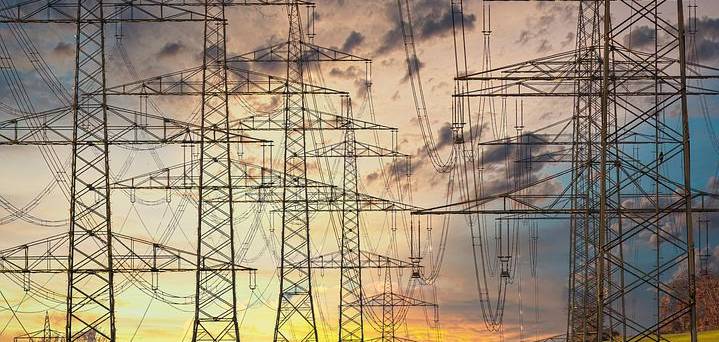
- Most people around the world don’t blame climate policies for rising energy costs, finds a new survey.
- Consumer support for ending the use of fossil fuels remains strong.
- But they expect surging energy prices to reduce their spending power.
Wherever you live in the world, energy prices are surging upwards. But a new global survey shows that people don’t blame climate policies for rising energy costs and strongly support moves to end the use of fossil fuels.
A survey of over 22,500 adults in 30 countries, conducted by Ipsos for the World Economic Forum, found that, on average, more than half of consumers expect rising energy costs to significantly reduce their spending power in 2022.
Results varied by country, however, with two-thirds of people living in South Africa, Japan and Turkey saying they expect to have less money to spend this year, compared to just over one-third in Switzerland and the Netherlands. People on low incomes and those aged 35 to 49 were most worried about their financial future.
Most people surveyed don’t blame climate change policies for energy price hikes. Image: Ipsos-World Economic Forum
Climate policies aren’t to blame
But despite the impact on their financial situation, people remain strongly supportive of climate policies, with an average of 84% saying that it is important to them personally that their country moves away from fossil fuels to more sustainable energy sources.
This view was strongly held in all countries, ranging from 72% of people in Russia and 75% in the United States to 93% in South Africa and Peru; the strongest feelings about the importance of ending reliance on fossil fuels was found in emerging nations.
Although support was strong among all demographic groups, slightly more women (87%) thought it was important to move away from fossil fuels than men (81%).
Market volatility was picked out as the main cause of energy price rises. Image: Ipsos-World Economic Forum
Only 13% of those questioned blamed climate policies for rising energy prices, with most naming volatility in oil and gas markets and current geopolitical tensions as the primary causes. Almost one in five said insufficient supply to meet demand was to blame.
Policies to tackle climate change were most commonly blamed in India where 24% of people thought they were the cause of energy price rises, followed by a fifth of people in Germany and 19% in Poland. Almost a fifth of business decision-makers shared that view.
The Netherlands was the only country where a majority of people identified a single cause for price rises, with 54% citing geopolitical tensions. Over two-fifths (46%) of people in Belgium and 42% of people in Italy agreed this was the main cause.
Misleading claims
“Unfortunately, we are once again seeing claims that volatility in gas and electricity markets is the result of the clean energy transition,” International Energy Agency Executive Director Dr Fatih Birol wrote in a recent blog.
“These assertions are misleading to say the least. This is not a renewables or a clean energy crisis; this is a natural gas market crisis. It is important to work from a sound evidence base on the causes of the current market turbulence.”
In reality, said Dr Birol, well-managed clean energy transitions can help reduce energy market volatility and its impacts on businesses and consumers. The World Economic Forum’s Fostering Effective Energy Transition 2021 report agreed.
But the report also warned against postponing climate policies as energy prices rise, saying that the cost of failing to deliver on the energy transition might be higher than the cost of the energy transition itself.
Now, in the context of the war in Ukraine and its impact on global energy systems, Trafigura's Chief Economist, Saad Rahim, warns, "In terms of the energy transition, there is consensus that we need to reduce our usage of fossil fuels, but oil demand is here to stay. Even if it's not growing in a few years’ time, there will still be a need to maintain that baseload of demand, and we're not investing enough to meet that.
The underinvestment in oil and gas will impact the funds needed for the energy transition, because oil and gas prices will spike to levels that place an economic burden on the global economy."
Posted on 2022-03-31 17:20










Comments